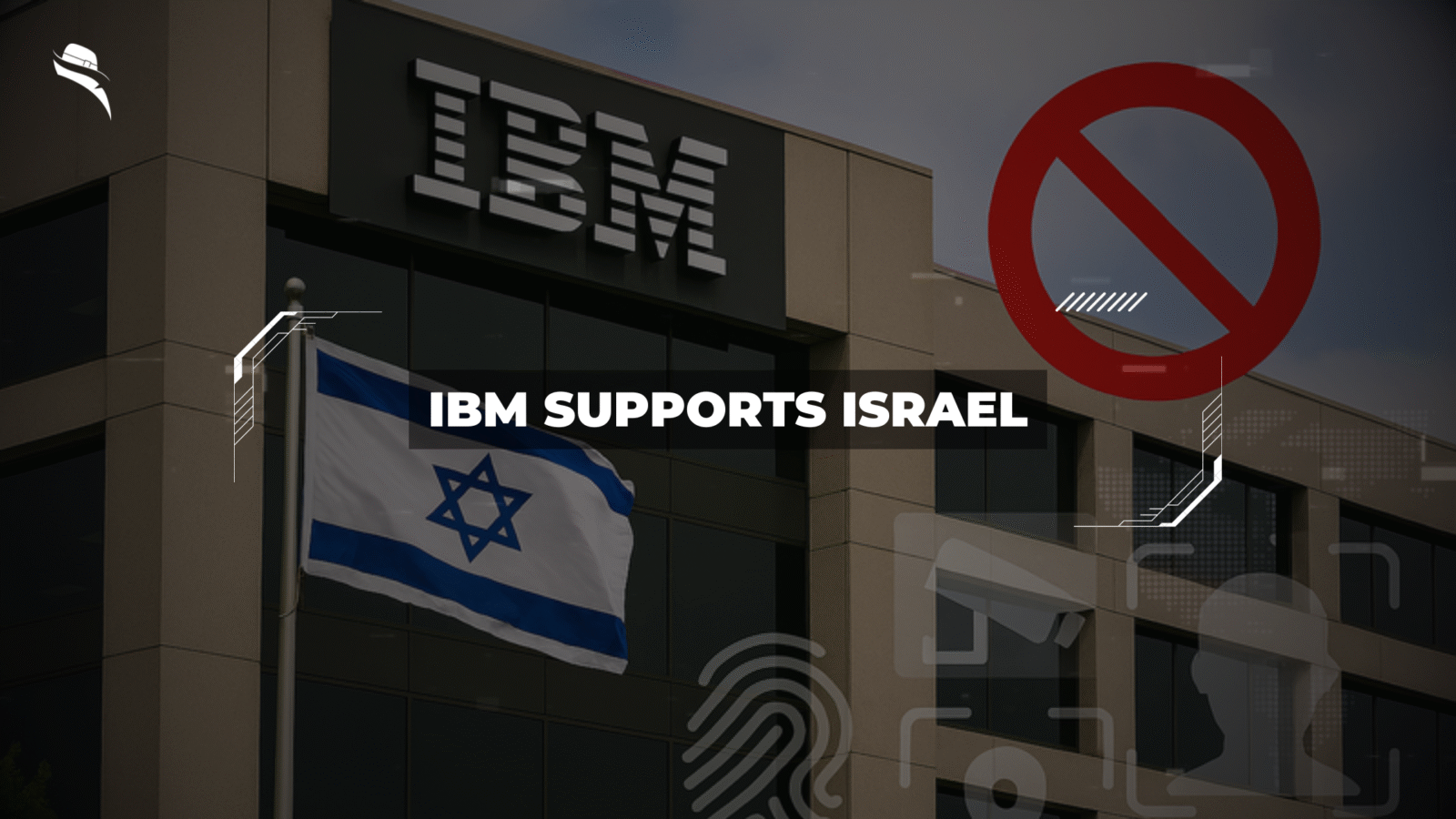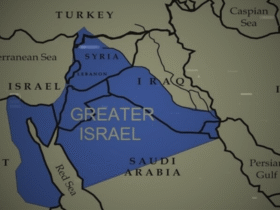This sophisticated IBM Israel Biometric Tech infrastructure manages Israel’s population registry database, recording personal data including ethnic and religious identities of both citizens and non-citizens. Furthermore, the IBM Israel Data Systems extend beyond basic record-keeping, specifically tracking Palestinians who live under Israeli occupation in East Jerusalem, the West Bank, Gaza, and Syrians in the occupied Syrian Golan. As a result of these operations, Norwegian asset management company Storebrand divested approximately $139 million from IBM in March 2024, citing concerns that the biometric systems were being “used to implement apartheid” in the Occupied Palestinian Territories.
IBM’s Biometric Tech and Data Systems in Israel
Overview of IBM Israel Biometric Tech
IBM has played a central role in supporting Israel’s population management and surveillance infrastructure, particularly through its long-term contracts with the Israeli Civil Administration. These contracts include the operation and maintenance of critical data systems used in both civilian and military settings. IBM’s technology, including software and infrastructure support, is used in digital identification processes and cloud platforms that enhance Israel’s capacity for data-driven control over occupied territories.
The Eitan System and Population Tracking
A key project managed by IBM is the Eitan system, a population registry and data management system operated by the Israeli Civil Administration in the West Bank. Introduced in 2019 to replace the older Aviv system, Eitan stores vast amounts of biometric and personal data on Palestinians living in the West Bank, residents of East Jerusalem, and Syrians in the Golan Heights. This includes facial images, fingerprints, family connections, travel permits, and security records. The system is expected to be maintained by IBM until at least 2035, forming the backbone of Israel’s digital occupation infrastructure and facilitating administrative and security control over millions of Palestinians.
Biometric ID Requirements for Palestinians
Palestinians are required to carry biometric identification to navigate through checkpoints, access essential services, or travel within or outside the occupied territories. This system of biometric IDs and associated permits is enforced through facial recognition cameras, fingerprint scanners, and AI-assisted monitoring tools placed at key crossings like Qalandiya and Bethlehem. The implementation of the 2009 Biometric Database Law further entrenched these systems, requiring residents—particularly Palestinians in East Jerusalem—to submit biometric data for official documents. Critics argue that the law has institutionalized discriminatory surveillance practices, disproportionately affecting Palestinians without sufficient oversight or accountability.
IBM Supports Israel for its Military Operations
Beyond providing biometric technology, IBM’s collaboration with Israel extends into direct military operations support. The company maintains deep connections with the Israel Defense Forces (IDF) through several technical partnerships and service agreements.
Red Hat’s role in military cloud infrastructure
Red Hat, an IBM subsidiary acquired in 2019, plays a crucial role in developing military cloud infrastructure for Israel. The company provides specialized cloud computing solutions that help the IDF maintain operational readiness and enhance its command and control capabilities. Red Hat’s open-source technology creates a flexible foundation for military applications, enabling faster deployment of mission-critical systems and improved data processing during operations.
The military cloud infrastructure, powered by Red Hat technology, allows for secure communications and real-time data sharing across different branches of the Israeli military. This infrastructure supports everything from logistics management to intelligence operations, creating a cohesive digital environment for military planning and execution.
AI and machine learning collaborations
IBM’s artificial intelligence and machine learning expertise has become increasingly valuable to Israel’s military operations. The company develops customized AI solutions that help analyze vast amounts of data collected during operations, identifying patterns and potential threats more efficiently than traditional methods.
These AI collaborations focus on enhancing predictive capabilities, allowing military planners to anticipate various scenarios and optimize resource allocation. Additionally, IBM’s machine learning algorithms assist in processing intelligence information, providing commanders with actionable insights during complex situations.
IBM’s long-term logistics contracts with IDF
Beyond technological solutions, IBM maintains substantial logistics contracts with the IDF that ensure operational continuity. These long-term agreements cover hardware maintenance, software updates, and technical support for critical military systems. The comprehensive nature of these contracts highlights IBM’s strategic importance to Israel’s defense infrastructure.
Moreover, IBM provides specialized training programs for military personnel, ensuring they can effectively utilize the company’s technologies during operations. This knowledge transfer component strengthens the relationship between IBM and the IDF while enhancing the military’s technical capabilities and operational effectiveness in both peacetime and conflict situations.
Global Reactions and Ethical Concerns
International investors have begun taking action against IBM’s technological involvement in Israel’s control systems. This reflects growing ethical concerns about the role of technology in conflict zones.
Storebrand’s divestment from IBM
In March 2024, Storebrand, Norway’s second-largest asset manager after its oil fund, sold all 750,000 shares it held in IBM, worth approximately £110 million (around $139 million). This significant financial decision came after Storebrand, which manages over £74.5 billion in assets, concluded that IBM’s technologies were enabling human rights violations. The Norwegian company’s sustainability report explicitly cited concerns that IBM’s biometric systems were being “used to implement apartheid” in the Occupied Palestinian Territories.
Allegations of apartheid and discrimination
At the core of these concerns is IBM’s Eitan System, designed for Israel’s Population, Immigration and Border Authority (PIBA). According to critics, this system contains biometric identifiers and personal information collected at borders and checkpoints. The system allegedly enforces a permit regime requiring Palestinians over age 16 to carry “smart” cards containing biometric data that determines their freedom of movement. These allegations draw uncomfortable parallels to IBM’s historical role in providing computers for South Africa’s apartheid-era national population registry, which was used to sort people by race and enforce segregation.
Lack of transparency and failed dialogue
Before divesting, Storebrand attempted to engage with IBM about these concerns, yet according to communications director Stig-Øyvind Blystad, the tech giant was “not willing to discuss this” issue. This pattern of non-engagement appears widespread across the technology sector. When the Business & Human Rights Resource Centre surveyed 104 tech companies about their human rights safeguards in the region, merely four responded—an “unprecedented” low response rate. Industry observers note that tech companies are “opaque and largely unwilling to provide information” about their involvement in conflict zones, despite increasing scrutiny of their role in potential human rights abuses.
The Broader Impact of Tech in Conflict Zones
Technology’s role in conflict zones extends far beyond immediate deployment, with ethical implications that ripple through time. IBM’s current support for Israel echoes troubling historical patterns.
IBM’s past involvement in controversial regimes
IBM’s technology facilitated Nazi Germany’s Holocaust through its punch card systems. Their German subsidiary, Dehomag, supplied Hollerith equipment that enabled the efficient management of concentration camps. Each camp maintained its own “Hollerith-Abteilung” (Hollerith Department) to track inmates. Indeed, IBM’s technology allowed Nazis to identify “racial Jews” through the 1939 national census. Although IBM claims its German subsidiary was under Nazi control, evidence suggests IBM New York maintained oversight throughout the war. Consequently, Holocaust survivors filed lawsuits against IBM in 2001, although these were later dropped.
Facial recognition and surveillance risks
Modern surveillance technologies present similar ethical dilemmas. In Ukraine, Clearview AI provided facial recognition services that helped identify Russian agents. However, critics warn that facial recognition technology (FRT) threatens informational privacy by scraping vast amounts of data without consent. This mass surveillance undermines autonomy, both individually and collectively. Furthermore, technologies tested in war zones often reappear in civilian applications, raising concerns about normalized surveillance.
Calls for corporate accountability in war zones
Corporate responsibility in conflict settings demands heightened due diligence. The UN Working Group on Business and Human Rights emphasizes that “a conflict zone is not a law-free zone”. Nonetheless, technology companies demonstrate unprecedented opacity when surveyed about due diligence measures in Israel/Palestine; not one of 104 tech companies responded. This silence increases legal and reputational risks, particularly as new corporate accountability standards emerge.
For a broader look at how global tech companies are shaping Israel’s digital infrastructure, read our main piece: Tech Companies That Support Israel
Final Thoughts
The landscape of military technology continues to evolve rapidly, with Israel recently announcing plans to expand artificial intelligence development across all military branches. This advancement occurs alongside significant shifts in the tech industry’s approach to military partnerships.
Major technology companies are increasingly embracing defense contracts. OpenAI modified its terms last year to permit national security applications, followed by Google, which recently removed language prohibiting the use of its AI for weapons and surveillance. Meanwhile, Palantir’s CEO advocates for Silicon Valley to work closely with the US military to develop AI weaponry, including “unmanned drone swarms and robots” for future battlefields.
IBM’s Israel operations remain robust after five decades, with the company proudly celebrating its achievements in developing innovations across AI, quantum computing, cloud technologies, and data security. The IBM Research lab in Israel stands as one of the company’s largest outside the United States.
Yet questions about corporate ethics persist. For many IBM employees, concerns about where the company draws ethical lines with foreign governments remain troubling, especially given IBM’s historical record of providing technologies to both apartheid South Africa and Nazi Germany. Although IBM claims a “strong culture of ethics and integrity”, critics point to the gap between public human rights commitments and actual business practices.
FAQs
1. What is IBM’s involvement with the Israeli government?
IBM holds a long-term contract with Israel’s Population, Immigration and Border Authority (PIBA) to manage its biometric population registry system, including the Eitan database, which tracks personal and biometric data of citizens and Palestinians under occupation.
2. What is the Eitan system operated by IBM?
Eitan is a biometric and data storage system used to manage Israel’s population registry, including information on Palestinians in the West Bank, East Jerusalem, Gaza, and Syrians in the Golan Heights. IBM was contracted to operate this system until at least 2035.
3. How does IBM technology affect Palestinians?
Palestinians are required to carry biometric IDs enforced by facial recognition and fingerprint scanning. These systems, supported by IBM infrastructure, restrict their movement and access to services, particularly at checkpoints across occupied territories.
4. Why did Storebrand divest from IBM?
Storebrand, a major Norwegian investment firm, sold its $139 million stake in IBM in 2024 due to concerns that IBM’s technology was enabling apartheid and human rights abuses against Palestinians.
5. Is IBM involved in Israeli military operations?
Yes. Through its subsidiary Red Hat, IBM provides cloud infrastructure and AI technology to the Israeli Defense Forces (IDF). These systems support command, control, intelligence, and logistical operations.
6. What is Red Hat’s role in Israel’s military tech?
Red Hat, owned by IBM, supplies the IDF with secure cloud platforms for real-time military communication, data analysis, and operational coordination across various branches.
7. What ethical concerns surround IBM’s operations in Israel?
Critics argue that IBM’s tech enables surveillance and control over Palestinians, drawing comparisons to the company’s historical ties with apartheid South Africa and Nazi Germany. Its biometric systems are viewed as tools of systemic discrimination.
8. What is the significance of biometric ID laws in Israel?
Israel’s 2009 Biometric Database Law requires residents, including Palestinians in East Jerusalem, to submit biometric data for official documents, entrenching surveillance practices with little oversight.
9. Has IBM responded to human rights concerns?
Despite outreach from investors like Storebrand, IBM reportedly refused to engage in dialogue over its involvement in Israel’s surveillance programs. This non-engagement mirrors broader industry patterns of opacity in conflict zones.
10. How does IBM’s past relate to its current actions?
IBM previously provided technology to the Nazi regime and apartheid South Africa. Critics now argue that its operations in Israel reflect a continued pattern of enabling governments involved in human rights violations.







Leave a Reply